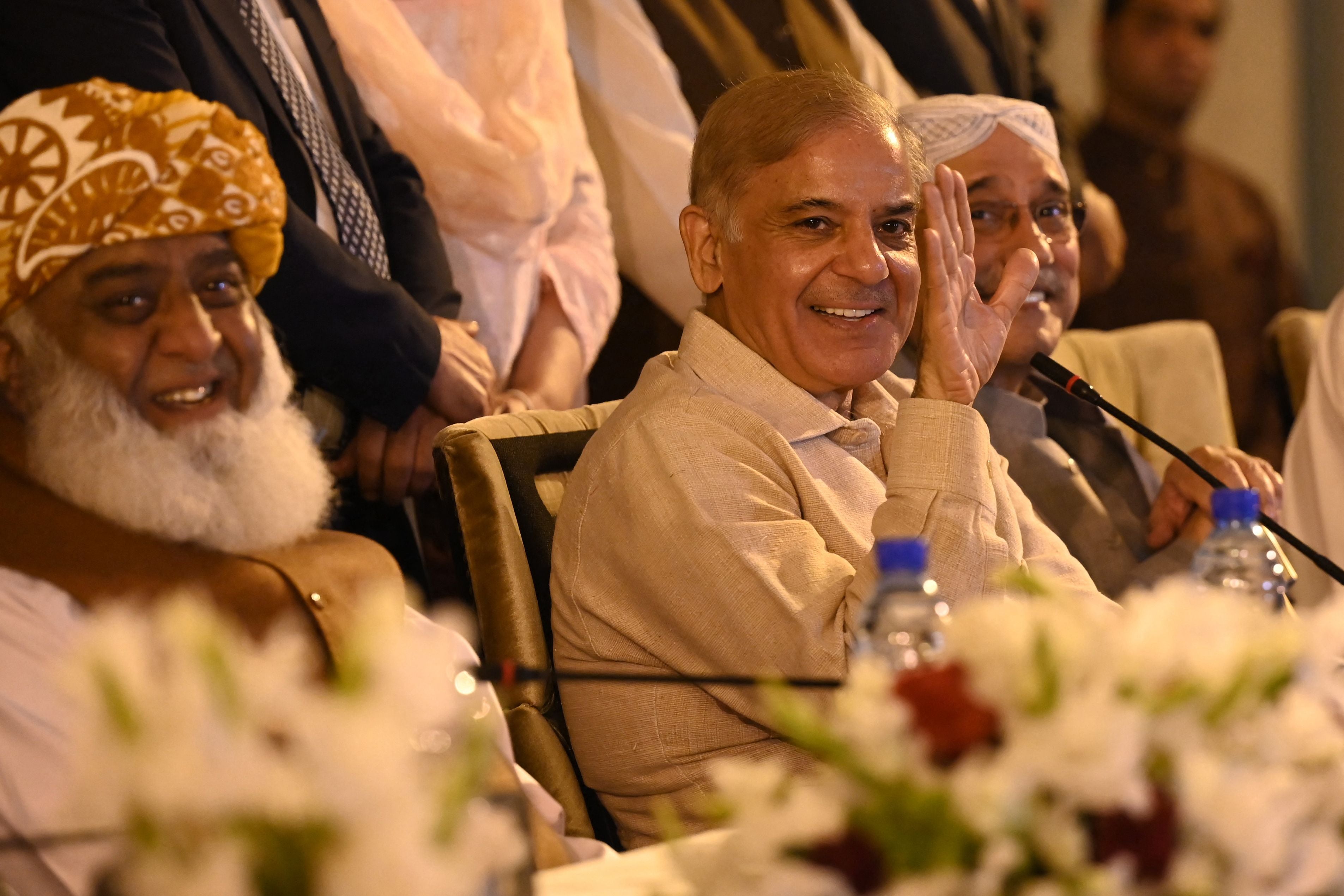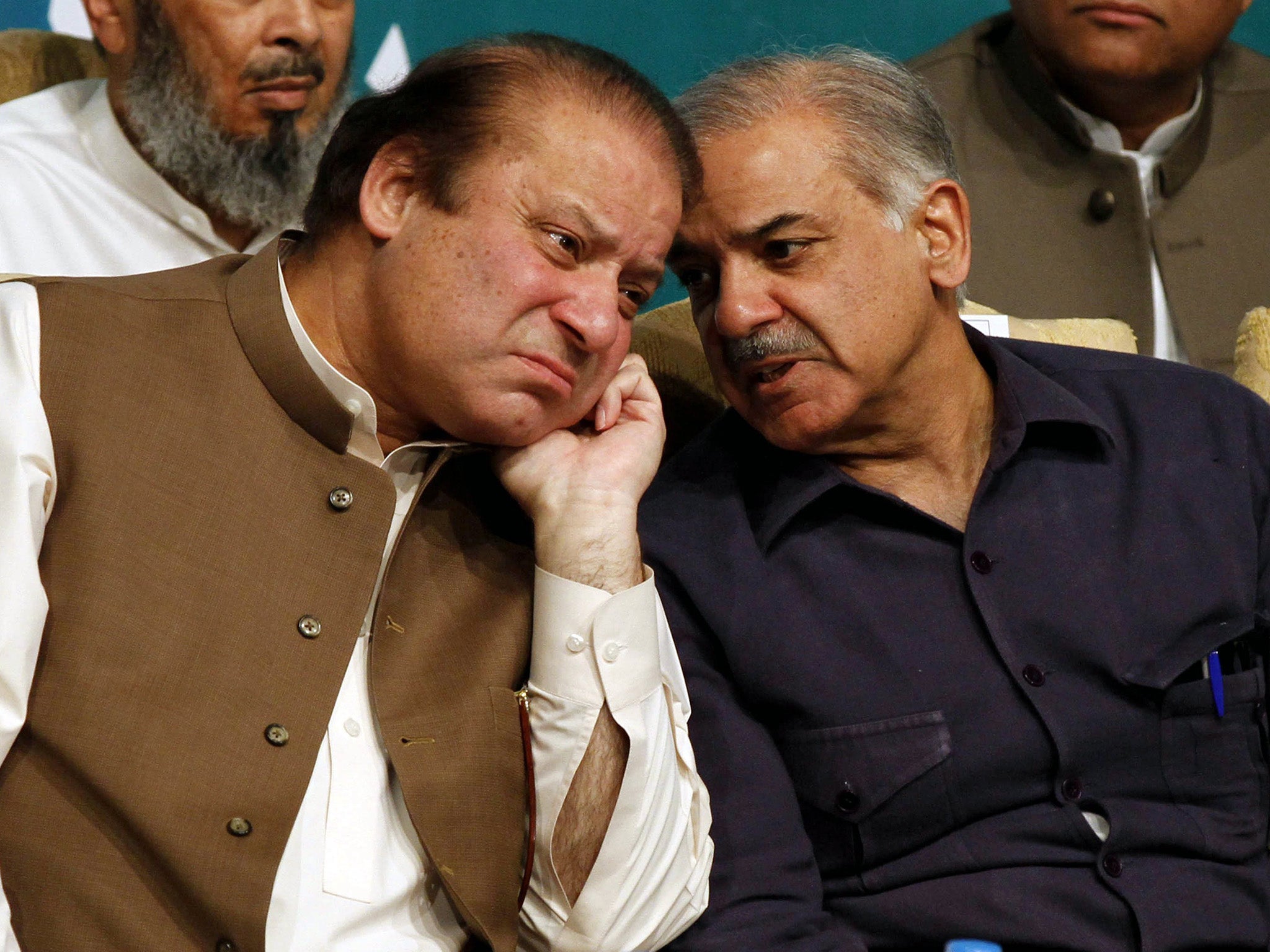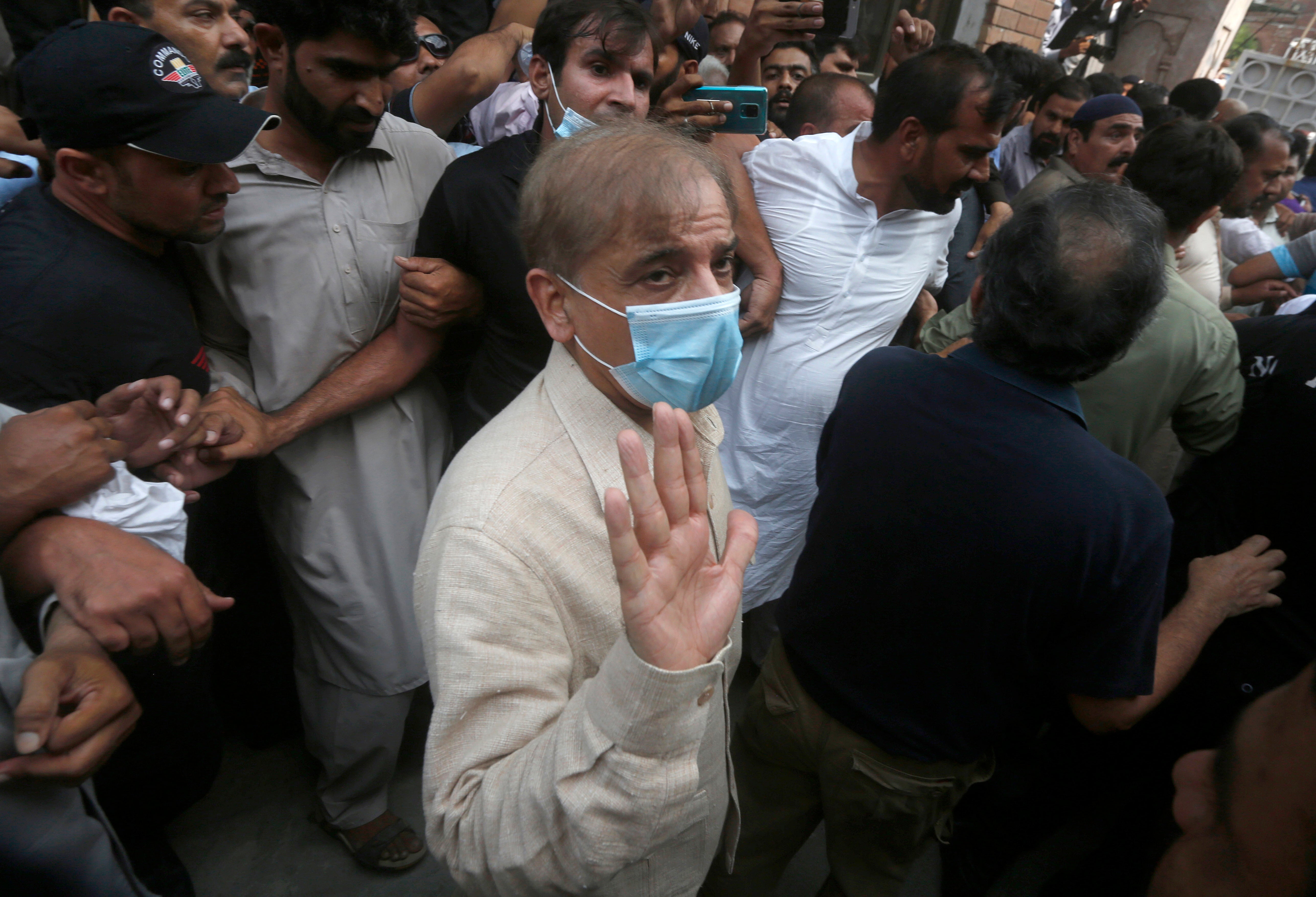Who is Shehbaz Sharif, the man replacing Pakistan PM Imran Khan?
From exile in Saudi Arabia to money laundering charges, the man replacing Imran Khan as prime minister has a long political history

Your support helps us to tell the story
From reproductive rights to climate change to Big Tech, The Independent is on the ground when the story is developing. Whether it's investigating the financials of Elon Musk's pro-Trump PAC or producing our latest documentary, 'The A Word', which shines a light on the American women fighting for reproductive rights, we know how important it is to parse out the facts from the messaging.
At such a critical moment in US history, we need reporters on the ground. Your donation allows us to keep sending journalists to speak to both sides of the story.
The Independent is trusted by Americans across the entire political spectrum. And unlike many other quality news outlets, we choose not to lock Americans out of our reporting and analysis with paywalls. We believe quality journalism should be available to everyone, paid for by those who can afford it.
Your support makes all the difference.Shehbaz Sharif, the leader of the opposition in Pakistan, has been elected as successor to ousted prime minister Imran Khan, after the former cricket star was removed from power through a no-confidence vote.
Known domestically as a reliable, effective administrator, Mr Sharif led a successful bid this week to topple Mr Khan’s government. A united opposition had moved a no-confidence motion against Mr Khan’s government and held his party, the Pakistan Tehreek-e-Insaaf (PTI), responsible for burgeoning inflation.
Mr Khan was ousted on 9 April after a week of political drama. He had initially tried to sidestep the vote by dissolving parliament and calling for early elections, but the Supreme Court ruled that unconstitutional and ordered the vote to go ahead.
On Monday, 70-year-old Mr Sharif of the Pakistan Muslim League was elected unopposed after Mr Khan’s Pakistan Tehreek-e-Insaf (PTI) party staged a walkout of the assembly and boycotted the vote among MPs.
Mr Khan, a former cricketer, has been facing mounting criticism over his performance, especially his handling of the country’s economy amid concerns of a record increase in inflation and rising deficits.
No prime minister in Pakistan has ever completed a full five-year term. The country has had 29 prime ministers since 1947.
Mr Sharif said this was a chance for a new beginning. “A new dawn has started... This alliance will rebuild Pakistan,” the 70-year-old said on Sunday.
Candidates for Pakistan’s next prime minister filed nomination papers on Sunday morning. The parliament met on Monday and elected Mr Sharif as its next leader.
Mr Sharif is the brother of former prime minister Nawaz Sharif and has been the leader of the opposition in the National Assembly since August 2018. He is also the current leader of the PML-N and took charge after his brother, who formed the party and is currently in London, was disqualified from holding office.
Mr Sharif has been a politician for over two and a half decades and has thrice served as the chief minister of Punjab, Pakistan’s wealthiest state, making him the longest-serving head of the province.
His career has included years of self-exile in Saudi Arabia after a military coup deposed his brother’s government in 1999 and he faced charges of money laundering.
In September 2020, Mr Sharif was arrested by the National Accountability Bureau of Pakistan on charges of laundering over Rs 7,328m (£30m) in a scheme involving close associates and family members. He was later released on bail.

While Mr Sharif enjoys popular support, Mr Khan did not let go without a fight.
The former prime minister clung on for almost a week as a united opposition tried to remove him.
“I am going to struggle,” he said in an address to the nation on 8 April, ahead of the vote the next day. “I tell all of my supporters across Pakistan, on Sunday, after Isha [evening] prayers, you all have to come out of your homes and protest peacefully against this imported government that is trying to come to power.”
Mr Khan has also repeatedly blamed “foreign powers” for the move to oust him because he had taken what he termed independent foreign policy decisions.

The former cricket star, who was voted into power with a promise of acting against corruption, lost key allies in a matter of weeks.
His party, the Pakistan Tehreek-e-Insaf, faced a challenge from the joint front formed by two opposition parties, the Pakistan Peoples Party (PPP) and the Pakistan Muslim League-N (PML-N).
The last nail in the coffin for Mr Khan was when his key ally Khalid Maqbool Siddiqui, the leader of Muttahida Qaumi Movement (MQM), announced that his party was joining the opposition seeking to oust him.
Robbed of his majority, Mr Khan only held 164 votes out of the needed 172 to continue as prime minister.
Last week, PPP chairman Bilawal Bhutto Zardari claimed Mr Khan had “lost [his] majority” to continue and declared Mr Sharif would soon become the country’s prime minister, confirming earlier reports that he was the main contender.
“Imran Khan has now lost his majority. He is no longer the prime minister. The parliament session is tomorrow. Let’s hold voting tomorrow and settle this matter,” Mr Bhutto had said last month. “We can then start working on transparent elections and the journey towards restoration of democracy and an end to economic crisis can then begin.”



Join our commenting forum
Join thought-provoking conversations, follow other Independent readers and see their replies
Comments